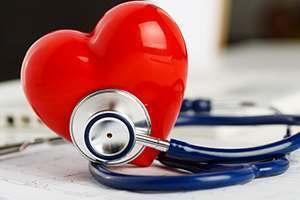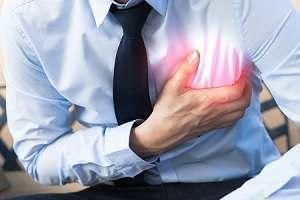Research is showing that the previously maligned ketogenic and restricted carb diets are, in fact, very good for you.
They could even save your life and reduce your chances of developing the world's most dangerous diseases, such as Diabetes, Insulin Resistance, etc.
What is most encouraging though is that many people find that they reduce their risk of having a heart attack quite substantially.
This is true for the average person on the diet but there are always exceptions to the rule - some people do react badly to this diet.
It seems that this diet can actually drive up the cholesterol in some people - this is particularly the case when ketosis occurs or if following paleo with a larger fat component.
The overall levels are increased and, more importantly, the LDL particle count does as well.
It is therefore better to err on the side of caution and work at reducing these levels.
Particularly important if you have cardiac disease prevalent in your family.
The good news is that you do not need to resort to medication, a hugely restrictive low-fat eating plan or unhealthy oils to reduce your levels.
All you need to do is to tweak the diet a little and you will be smiling.
What Is High?
Reading cholesterol stats properly takes a fair amount of knowledge.
By now you probably understand that there are three types of readings - The overall reading, the HDL reading and the LDL reading.
If your HDL reading is high, this is a good thing and can bring down your chances of contracting cardiovascular disease. If you LDL reading is high, on the other hand, your chances are increased.
That is still really an oversimplified version of the whole picture though. Labelling LDL simply as bad is not actually correct - it is the size of each molecule that determines how dangerous it is.
The more small particles you have, the more you are at risk for developing cardiovascular disease.
Scientists have now come to the conclusion that it is more important to look at the particle number when it comes to assessing risk factors. That is LDL-p.
What is usually measured is the concentration LDL and what levels of cholesterol they are transporting.
Before you start panicking about high cholesterol levels, you need to also have an LDL-p count or an ApoB done.
Should these tests proved normal, despite your LDL levels being high, you are probably still safe.
When you restrict your intake of carbs, you are bound to see an increase in HDL and a drop in triglycerides. The LDL reading and the overall readings are bound to remain unchanged.
The difference we are most interested in though is that LDL-p - this usually drops as well.This is what most people can expect. There are some who will find that these numbers will rise rather than drop.
One of the leading scientists in the field, Dr. Thomas Dayspring, sets out to explain this phenomenon:
You will need to register to view the article but it is a very interesting one and worth reading.
The downside is that the particle count tests do tend to be rather expensive to run and are not always on offer.
If this is the case for you, then it is advisable to have your Non-HDL cholesterol measured - this is the next best thing. Should these levels be on the high side, it makes sense to work at getting them in line.
What it boils down to: There are some people who, contrary to normal, will find that restricting carbs and also having a high fat intake will elevate the levels of bad cholesterol and the LDL particles in the blood.
Other Influences That Can Cause Cholesterol Spikes
You also need to consider that factors other than diet can lead to an increased cholesterol level - there may be a medical reason for these levels.
Take the thyroid, for example. If it is not operating as well as it should, your cholesterol levels can increase.
Losing weight can, sometimes, elevate LDL levels in the short-term.
Should this happen whilst you are experiencing really quick weight loss, you might need to let your weight stabilize and then try again.
Hypercholesterolemia, especially if it runs in the family is another factor to consider. It is estimated that around one person out of five hundred have this condition. It manifests in extremely elevated blood cholesterol and an increased risk of cardiovascular disease.
As with all things genetic, there are a whole of differences, even within the same family, that may affect how we react to different eating plans.
There may also be a link between stress and an increase in cholesterol levels. You can try natural supplements to get stress and anxiety under control.
If any of the above do apply, you need to start working on reducing them now. Here is what you can do today.
What it boils down to: Get the all clear from your doctor regarding any inherited or medical conditions that may raise your cholesterol levels.
Ditch The Bulletproof Coffee
This is big news in the communities who follow paleo or reduced carb eating plans.
Basically what you do is to add around about 15ml-30ml MCT or coconut oil and 30ml butter to your coffee every morning.
Proponents claim that this makes the coffee taste great, helps to reduce appetite and also boosts their energy levels.
Now, this sounds like a good thing - you have coffee and two forms of saturated fats.
Individually these are all healthy.
Just because each of these is healthy in its own right and in smaller doses, doesn't mean that huge doses are a lot better.
The studies conducted in relation to saturated fat have confirmed that it is healthy, as long as it is used in normal quantities.
We do not know what will happen when you begin to add saturated fat in above normal amounts, especially if it gets in the way of you eating other healthy foods. This makes no sense in terms of evolution.
According to Drs Karl and Spencer Nadolsky, both proponents of the restricted carb diets, they found that patients with high levels of cholesterol were able to bring these back in line simply by cutting out this kind of coffee.
If you do have problems with your cholesterol and do imbibe this kind of coffee, you need to give it up now.
What it boils down to: See what the result of abstaining from bulletproof coffee is. That may be all you need to bring your cholesterol back in line.
Swap Some Saturated Fats For Monounsaturated Fats
Huge studies, sampling thousands and thousands of people have proven that there is no causal link between an increased risk of cardiovascular disease or cardiac arrest and saturated fat.
If, however, your cholesterol is on the high side, you should look to swap out a portion of the saturated fats and replace them with monounsaturated ones.
This in itself could be all you need to normalize cholesterol.
Use olive oil for cooking in place of coconut oil and butter. Up your intake of avocados, nuts and olives - all of which have high levels of these fats
Should that not make enough of a difference, you should start looking at eating leaner cuts of meat.
Olive oil's virtues cannot be overemphasized. Get the best quality oil you can afford - as unprocessed as possible and you will be doing your heart a huge favor.
Not only does it help to increase the levels of HDL cholesterol, it also helps to convert the LDL into a more harmless form and prevents it from oxidizing. The oil can help bring down high inflammation levels and could have a role in the normalizing of blood pressure.
This is one your heart's best friend and should be incorporated in everyone's diet but is especially important for those with high levels of cholesterol.
You also need to get Omega 3 in on a weekly basis. This means either including oily fish in the diet or taking a supplement.
What it boils down to: Monounsaturated when it comes to fats, are better able to reduce the levels of cholesterol than saturated fats are.
Ketosis Is Out, Good Food Is In
Ketogenic diets were very much the fad a few years ago. Most people think a low-carb eating plan is the same thing. However, whilst all ketogenic eating plans are low in carbs, it does not need work the other way around.
Ketosis occurs when the diet is so low in carbs that the body starts to process the fatty acids.
Those suffering from epilepsy seem to get the most out of this diet. For proponents of the diet, the results in terms of improved physical and mental shape are worth the effort.
You do not, however, need to put your body through such rigors in order to get similar effects.
Whilst there is not really any official recommendation in terms of a low carb eating plan, you can get by on as much as one hundred to one hundred and fifty grams daily.
In same cases those who have elevated cholesterol levels during ketosis find that simply moving out of that range helps to normalize that.
Start by eating one or two servings of fruits daily or possibly adding potatoes with dinner.
Alternatively start eating oats and rice - very healthy even though starchy.
Alternatively, if it suits you, you can simply increase the number of carbs on your normal paleo diet instead.
This too is quite good for you - Look at the Okinawans, for example. They eat plenty of high quality carbs and are healthy despite this.
There is no denying that there are benefits to following a ketogenic diet but it is certainly not going to suit all dieters.
You can bring your cholesterol down by including foods that have a lot of soluble fiber and supplementing with niacin for good measure.
Reducing your stress, getting enough exercise and getting your eight hours of sleep a night are also recommended.
What You Should Get Out Of This
This article is meant to advise you but should never be taken in place of medical advice.
Before changing your lifestyle drastically, go and talk to your health care practitioner about it.
Also remember that I'm not speaking out against diets low in carbs or saying that saturated fat is not good for you.
The idea here was to help those people who find that their cholesterol levels increased on these diets.
I am still all for restricting carb intake - I do it every day. I do not, however, go into ketosis and I eat proper food that is low in carbs. I get no more than 100g a day.
What it boils down to: is simply that restricting your carb intake is very good for you and there are more ticks in the plus than minus columns for most people.
















